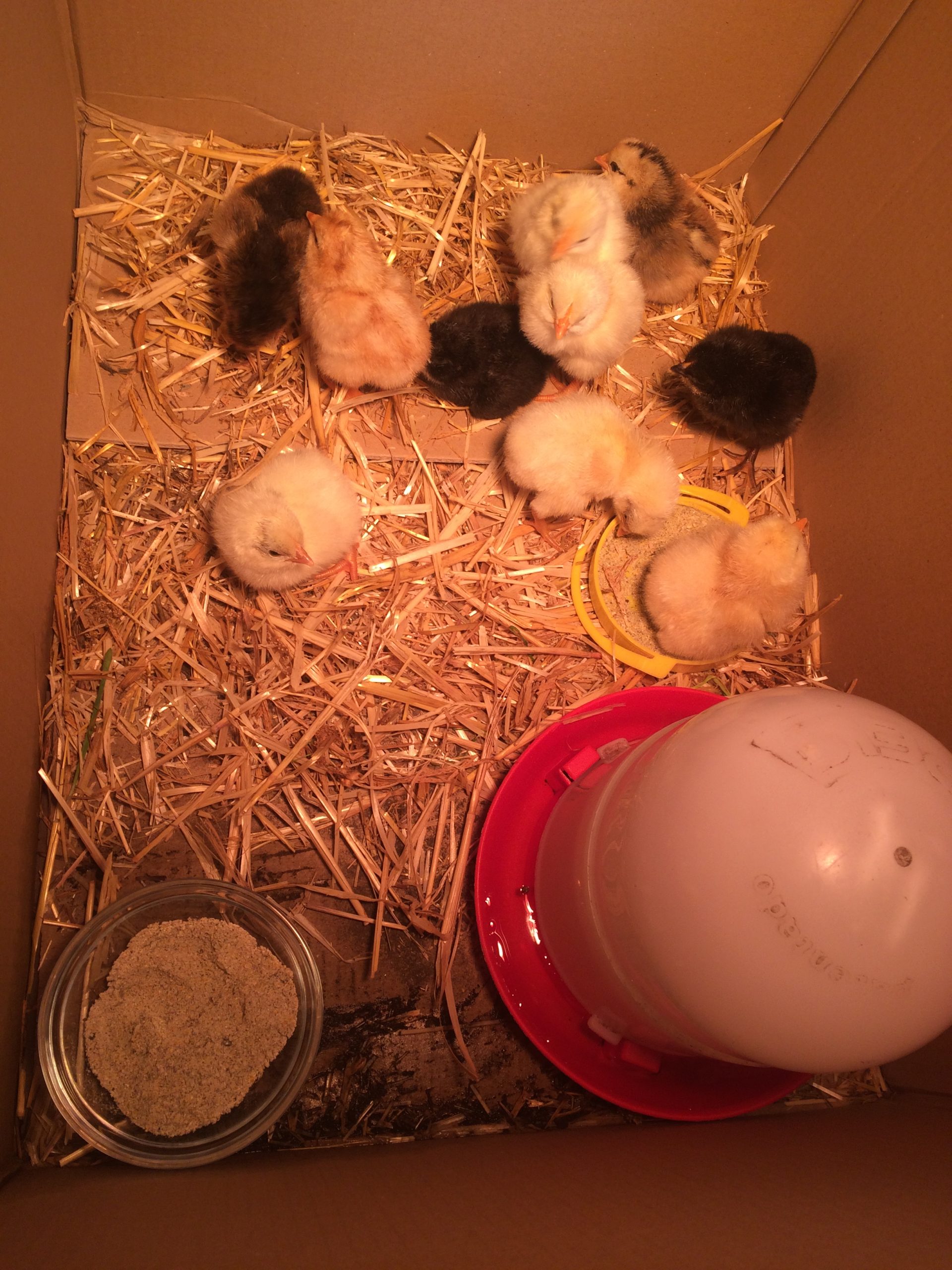From Egg to Chicken

In a previous article I described the process from chicken to egg and how, when we eat an egg, part of the hen actually becomes part of us. I stated that, for this reason, we should ideally consciously choose which chicken’s eggs we eat. In yet another previous article I stated how commercially bought seedlings (plants) are usually grown from industrial seed varieties and treated chemically.
Today I want to share about the process from egg to chicken. We might have the idea that, if we did not remove the eggs from the hens, the hens would brood those eggs and make them turn into baby chicks. Unfortunately, reality is not as romantic as you might think it is.
Most eggs would simply perish, because most hens these days no longer have the brooding impulse.
How come?
- Most hens come from “high production” industrial breeds
- EGG producers first of all are not interested in chicks, they are interested in eggs. Brooding hens stop laying eggs and also “block” the eggs they are brooding (or get stressed or aggressive if they are forced away from her eggs).
- CHICK producers want a higher success rate and a more controlled, efficient and consistent process than nature can offer (in nature there is always a lot of “loss”)
This is why eggs are usually removed from the hens every day, either for sales (consumption) or to be incubated artificially. If you do that over many, many generations (and also apply measures of selective breeding), hens eventually lose their brooding instinct – simply because there are no more eggs to sit on and also because they themselves have been incubated and thus not received that “breeding energy” nor seen a mother hen example during their development.
So, if – as a chicken owner – you want new chickens in your flock, you either have to buy them (and, just like in the case of the seedlings, most of what you can buy comes from a handful of industrial breeds that have been incubated from eggs of hens fed chemically treated GMO feed) or incubate eggs yourself. This, however, is not as straight forward as may sound, because you need controlled conditions (temperature and humidity) for 3 weeks. Since one of my neighbors is a technically knowledgable handyman, we do have a self-constructed incubator at our disposal, which has already been used a couple of times to incubate eggs.

However, for the first years I never got involved in that process, because it seemed quite unnatural to me. That changed when two of our chickens, including one of my favorite ones, were killed by a predator in April. I really desired to incubate her last egg, so that her spirit could live on in her baby chick. I also figured that having more chickens would give us a higher tolerance range, if occasionally one was lost to a predator (I really could not imagine locking them up constantly to protect them). If incubation was the way to get there, so be it. After all, we did not turn to this “technology” to make up for a lack of fertility, as humans tend to do. In the long run, I also have the intention to acquire a hen of a less industrial breed that still DOES have the brooding impulse… But for now, that was not an option and so I decided to change my perspective on incubation.
I selected 12 clean eggs of different colors (the color depends on the breed, e.g. white chickens lay white eggs and brown chickens lay brown eggs) and for 3 weeks we took care of them every day, refilling the water, turning the eggs… until after almost 3 weeks, 10 baby chicks hatched (2 eggs had either not been fertilized by our cocks or the embryos died for whatever reason). Since the “parents” came from 4 different breeds, the chicks came out as beautiful individual mixtures. Thanks incubator!

By now, they are 3.5 weeks old and growing every day. I feed them a special mix to avoid store-bought GMO mixes (read more here)) and really feel like a “maman poule” – a mother hen. As bewildering as the idea might seem that they are growing up without a “real” mother, they do not seem to miss anything. They cuddle up against each other and when outside (since day 8 we take them out for a while every day), show all the natural instincts (pecking, worm and ant hunting, dust bathing and even some first “macho” behaviors, which makes it easier to distinguish males from females), without anyone having shown them (the first time they saw an adult hen was around 2.5 weeks).
My neighbor tells me that these chicks are much more active and alert than all the ones he has incubated before – and he attributes it to the fact that the mother hens (and cocks) were so healthy (free-range, pasture plus organic grain) and to the special feed I make for them every few days. I am thrilled, because it confirms again that:
Taking care of your own health to maximize the quality of the egg BEFORE conception and the diet you feed to your baby really does make a difference.
It also confirms that we always continue learning and that we should never get so hardened in our perspectives that we can no longer look at things in a different way. In fact, having incubated turned out to be a huuuge blessing in disguise for a reason I will reveal soon…
